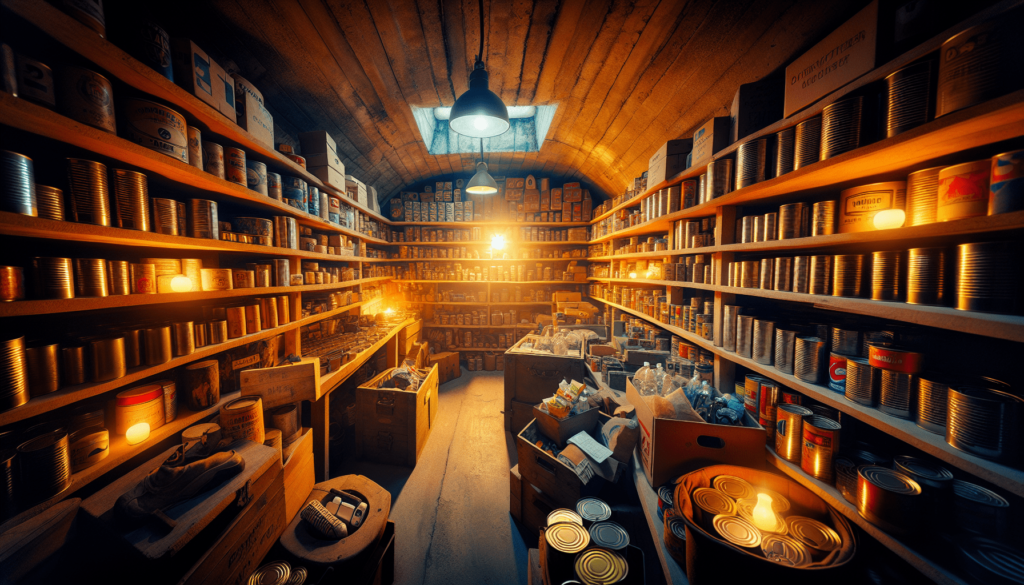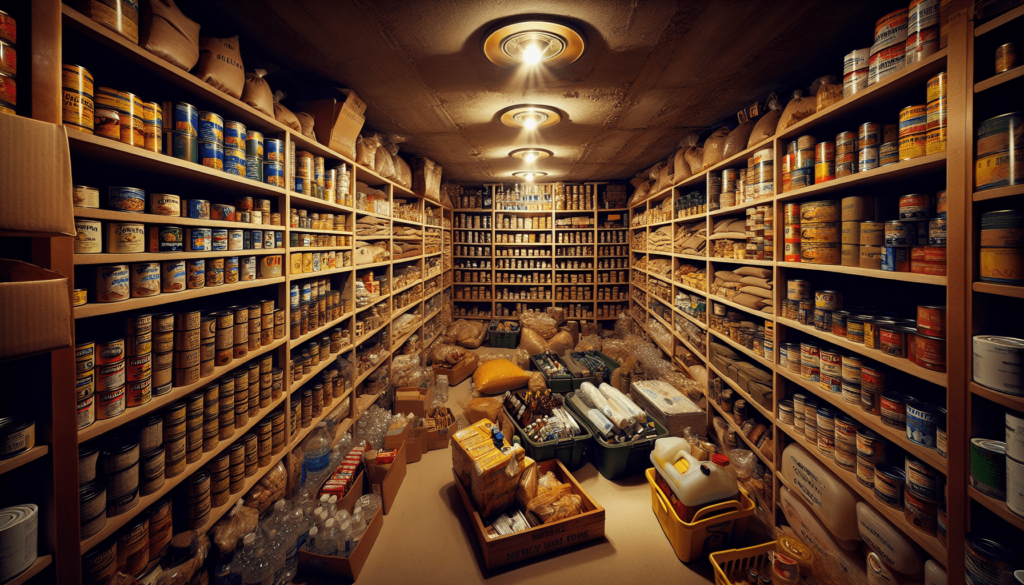
What’s the first thing that pops into your head when someone mentions the end of the world? Maybe it’s images of apocalyptic movies with zombies roaming the streets or news segments about the latest environmental catastrophe that make you question if there’s a glimmer of truth in them. The idea of the world ending, while rather dramatic and a tad unsettling, has been a fascination for many. But have you ever wondered: who are the people who are actually ready for when the world decides to call it quits?
Understanding the Concept of “The End of the World”
Before we even get into who these folks are, we need to clarify what “the end of the world” even means. This isn’t just about the planet exploding like a scene from a Hollywood blockbuster. When I talk about the end of the world, I’m referring to various scenarios and beliefs that could mark the conclusion of life as we know it—be it from natural disasters, nuclear wars, pandemics, or even alien invasions.
The Different Types of Apocalyptic Scenarios
To understand those who are prepared, we must first look at what they are preparing for. There are myriad tales and theories about how our world might end:
-
Natural Disasters: Think massive earthquakes, tsunamis, or volcanic eruptions. Movies have done a great job at dramatizing these scenarios.
-
Pandemics: It’s a bit too familiar now, isn’t it? History, old and new, shows pandemics can bring entire civilizations to their knees.
-
Nuclear War: Maybe it’s the lingering Cold War mentality, but this hasn’t stopped being one of the more worrisome possibilities.
-
Alien Invasion: Hasn’t every kid dreamt of defending Earth from aliens at some point? While less likely, it’s a favorite among science fiction enthusiasts.
Apocalyptic Themes in Culture
What captivates about these doomsday scenarios isn’t just their potential reality, but their presence in our stories and dreams—or nightmares. Literature is flush with tales of world-ending calamities. Think of the Four Horsemen of the Apocalypse riding through religious texts or dystopian novels scanning the bookshelves. “The road” by Cormac McCarthy still gives me the chills! How these stories are woven into our collective consciousness is crucial to understanding who mentally, spiritually, and physically readies themselves for such possibilities.
Who Are the Preppers?
Now, let’s dig into who these people are. If someone is proactively getting ready for the apocalypse, we often label them as a “prepper.” But that’s really scratching the surface of their identities.
A Bit About Preppers
Preppers are individuals who actively prepare for emergencies, including potential disruptions in social or political order. They stockpile supplies, learn skills, and sometimes build entire networks or communities dedicated to their cause. They’ve technically always been around in some form or another; think of grandparents with basements full of canned goods, or folks who’ve converted their backyards into survival vegetable gardens.
Varieties of Preppers: More Than Just Canned Food Enthusiasts
When you hear the term “prepper,” you might picture someone with a bunker and a pantry full of beans. While those types exist, the community is a kaleidoscope of just about every possible lifestyle and belief system.
-
Self-Sufficient Preppers: These individuals focus on skills like farming, manual tool operation, and primitive living. Think of them as modern pioneers who could homestead by choice, not necessity.
-
Suburban Preppers: Largely unknown to many of their neighbors, they prepare within the confines of modern life. This might include solar power systems, gardening in raised beds, and discreet water storage solutions.
-
Community-Based Preppers: For them, it’s about building a network. They believe survival hinges on interconnectedness, potentially creating micro-societies should larger societal structures collapse.
-
Paranoid Preppers: Often portrayed in popular media, these individuals sometimes anticipate government conspiracies, and their readiness plans might border on the extreme.
-
Pragmatic Preppers: These folks are about realistic preparedness. They don’t expect a global collapse but are ready for natural disasters and local emergencies.

Motivations Behind Preparing for the End
So, why does someone choose to become a prepper? Are these folks slightly paranoid or just prudent? Exploring motivations can be revealing.
Fear of the Unknown
Uncertainty can gnaw at the strongest of us. The unpredictability of life—whether it’s weather patterns shifting at will or threat levels rising due to global tensions—makes some feel safer with a plan in place. It’s like worrying whether you left the stove on times a million.
A Desire for Control
Preparing taps into an essential human need: control. When the world feels unpredictable, having a stash of food, water, and knowledge becomes a comfort.
Historical Influence
Historical events, such as wars, economic crashes, and past pandemics, have left imprints on collective memory. Families who lived through the Great Depression might pass down habits and stories encouraging subsequent generations to store goods and be cautious.
Community and Identity
It’s not just about survival—it’s about forging connections. The prepper community provides a sense of purpose and identity, with like-minded people coming together in forums, meetups, or through social media.
Critiques and Misconceptions
With any group, there comes a fair share of misunderstandings and stereotypes. The “Doomsday Prepper” trope stands as a perfect case in point.
Crazy, Paranoid, or Just Prepared?
Movies and TV shows haven’t always done a fair job of representing the prepper community, leaning more toward the eccentric ends for drama’s sake. But are they just eccentric or simply prudent?
DIY: For Preparedness and Pragmatics
On the other hand, you’ll find the DIY spirit is strong among preppers. Remember all those people suddenly learning to bake bread or starting herb gardens during the lockdown? It wasn’t just a pandemic fad. These practical skills, once a necessity, are making a comeback in certain circles.

Skills That Could Make You Feel Like a Prepper
Even if you’re not stashing away cans or conserving rainwater, some skills are handy to have for anyone to survive if that blackout lasted longer than a few hours or—heaven forbid—convenience stores went out of stock.
Basic First Aid
Knowing how to handle minor injuries isn’t just for Boy Scouts. Whether you’re hiking or just day-to-day, being equipped to manage small wounds or crises is empowering.
Food Preservation
Canning, drying, and fermenting foods sound like something out of ye olde times but give it a shot. You’ll find it rewarding—kind of like your grandma’s secret jams.
Navigational Skills
What if your GPS gave out and you needed to read a map? With everyone attached to phones, this once-basic skill is almost anachronistic yet immensely valuable.
Gardening
With rising grocery costs and unpredictable global supplies, the simple act of growing your own tomatoes or herbs can mitigate food insecurity and offer a sense of achievement.
Self-Defense
Whether you think of Karate lessons or just knowing effective ways to ensure personal safety, being prepared doesn’t necessarily mean stockpiling weapons—it means being able to protect yourself and your family.
Room for Debate: Prepper or Realist?
Throughout this narrative around preppers lies a broader question. Is planning for the end of the world actually sensible?
When Did Prepping Become Necessary?
Is preparing for disasters—natural or otherwise—an age-old tradition, or a modern-day business spurred by fear? Whether it’s more necessary than before, given our interconnected global society’s fragility, is up for debate.
Rationalizing Emergency Preparedness
Governments and agencies routinely prompt citizens to be “emergency-ready.” But where does general preparedness end, and something more elaborate begin? It can be quite the balancing act.
Lessons We Can Learn from Preppers
So maybe you aren’t about to build an underground bunker. However, what can everyday people learn from those bracing for the worst?
Preparations Don’t Mean Paranoia
Contrary to popular belief, getting prepared doesn’t have to mean expecting the worst. It could be viewed as insurance against an unpredictable world.
Importance of Resourcefulness
Prepping is essentially about versatility. Knowing how to make do with what you have can reduce waste and deliver creative solutions in a pinch.
Strength in Community
If there’s one takeaway, it’s that a strong sense of community might just be the best “weapon” against adversity. As humans, banding together boosts our resilience.
Asking “What If” Without Needing an Answer
To some, those ready for the world’s end seem quirky to outsiders. But given a little insight, they offer unique perspectives on optimism, control, and meaning in chaos. Maybe they dwell less on the end itself and focus more on readiness, finding stability in an unstable universe. Isn’t that something we all can aspire to?
